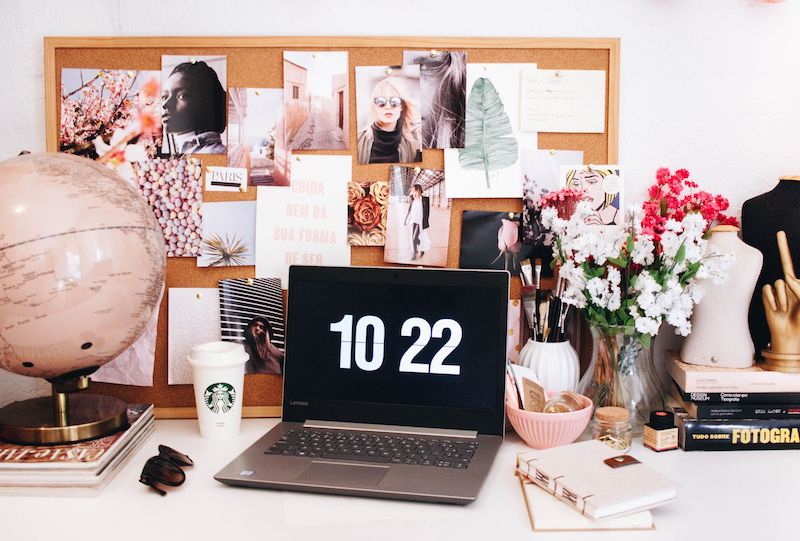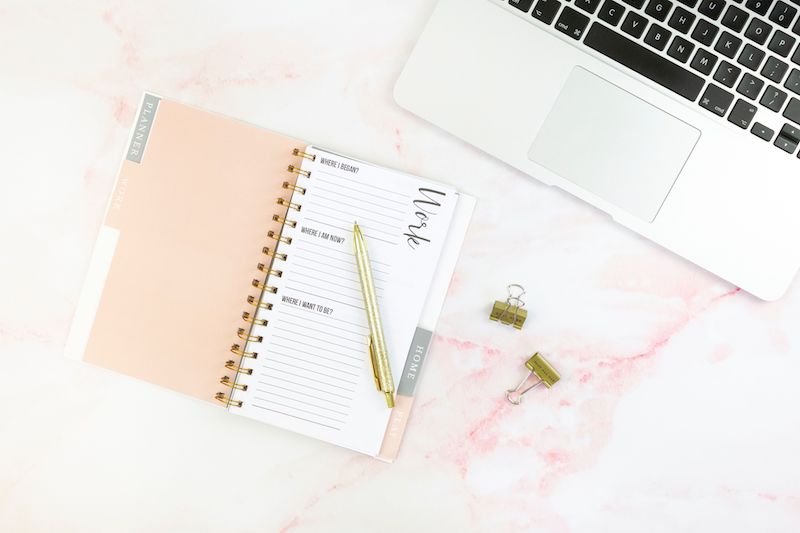It’s not for everyone. I’ve met people who look at me in complete shock and horror when I tell them that I spend most of my time working from home. To some, the prospect of losing things like the social interaction and usual distractions of a day spent at the office, is simply unthinkable.
I really can’t blame them. It’s easy to lose track of time and blur lines when your workspace is also your home. Easy to either spend too much time working or to fall into procrastination with the excuse of some chore that just needs to get done. Still, it’s achievable. And all that time that’s not wasted in traffic, commuting back and forth can leave you with some unexpected – and much appreciated – free time.
I’ve been working from home for a few years, which has given me enough time to do it all wrong and learn a little bit from my mistakes. I’m not going to say I never surrender to the appeal of my favorite couch, but I know how to prioritize and how to be productive and respect my workspace and schedule.

The Subtle Art of Working from Home
1Designate a work space. Stay out of your bedroom unless it’s absolutely necessary, that way that area can be a getaway from the workspace. If you have the room to create your own office, do it. If not, find a corner of the house and make it your own. A designated work area will also make it easier for others to respect that this is where you keep your work stuff. A concept that can seem a little bewildering to office goers.
2Have a morning routine.
Have breakfast, take care of personal calls or emails, shower and change before starting the workday. You obviously don’t have to dress up, but it helps to make the beginning of the day real. If I don’t change into street clothes, I will very rarely manage anything productive once I’m done with the more pressing work. This is how you end up with last-minute assignments that can take over your entire weekend.
3Schedule your work ahead of time. I’m easily distracted, so anything that brings a little order to my day is appreciated. Look at what needs to be done through the day and set goals before you decide when to take breaks and when to stop working for the day. It helps to have a fixed work schedule if the nature of your job allows it. It may be impossible to avoid projects that demand more and may sometimes entail working late or on weekends but administering deadlines can let you plan ahead. In order to do this, you need to set clear expectations with your boss, your clients and yourself.
4Prepare your lunch ahead, just as if you were planning to leave the house. There are two reasons this is a good idea. First of all, it makes you keep up the illusion that “you’re not home”, which can be key in concentrating. Second, it can save you time, money and keep you away from unhealthy meals and snacks. You can assign time to get out of the house and get something to eat now and then, but your pocket will probably appreciate occasionally staying in. To avoid overdoing it with the snacks, (it’s easy to fall into this trap when you’re so close to your very own fridge and pantry) prepare some for the day as well. Also? Research shows that when we choose all our meals for the week at the same time, we tend to have a healthier and more varied diet.
5Avoid family and friends during work hours. My mother has a really hard time understanding that working from home doesn’t mean I’m just hanging out at my place, a misunderstanding she shares with friends who have free time during working hours. Likewise, some friends have mentioned how important it is for their kids to understand that mommy’s working, even if she is home. Avoiding them will not only make you more productive, it’ll help them understand that your work hours must be respected. Just as they would be respected if you were at the office. Having your own office space also helps set boundaries and avoid interruptions from your children, partner and other house guests.
6Get out of the house. Make sure that you make time to do other things, like taking a walk, going to the gym or having lunch with work colleagues. It helps you clear your mind and it’s important when so much time is being spent in your house. Remember, vitamin D is important so make time to step out into the sun. A certain flexibility comes with working from home and that can usually mean you can take that class or wander off for a couple of hours to do something that will make you happy.
7Take advantage of projects that allow you to collaborate with others. While there are many upsides to working from home, creating your own schedule and being in charge of your own time, it can be pretty isolating too. Being part of a team and the interaction that comes from it is good for our mental health and can motivate us to work harder, providing a fresh perspective that’s not always available when doing home office. Look for projects that will allow you to collaborate with other people and make time to meet up for lunch, coffee or drinks every now and then. You don’t always need to be confined to your workspace. If you collaborate with larger companies, it may be a good idea to stop by the office to say hello now and then.
8Stay in touch. Make sure you’re talking to the people you work with, especially when you’re a part of an international team with multiple time zones. Differing time zones can make it harder to keep up with everyone, especially if you’re trying to stick to your work hours. Try to schedule conference calls and video chats at times where all, or at least most of the team can join. If it’s not up to you, be open to them and try to engage and make your presence felt. It’ll help you and others to feel like a part of the team, even if you and others are working remotely.

The Benefits of Working from Home
While some people feel that working from home would affect productivity negatively, a robust two-year study held by Nicholas Bloom, from Stanford University, proved that people in a work-from-home situation actually worked full-shifts and found it easier to concentrate while working from home.
The main problem for most people is how isolating it can be. Like I said, it’s not for everyone. Some people need the very specific aspects of a more conventional work environment to be productive. However, more and more companies are finding that the rise in efficiency of their home office teams and the money that can be saved by reducing office space might be worth looking into.
If done right, home office can make you the master of your own time. It takes some effort to perfect it, but you can learn not to procrastinate, to choose the right collaborations and the best people to collaborate with. It’s all about avoiding distractions, managing your time, sticking to your priorities and building a good relationship with the people you work with. In any case, it’s looking more and more like it could be the standard for the future, so this is a good time to start exploring the benefits!

























































































































































































